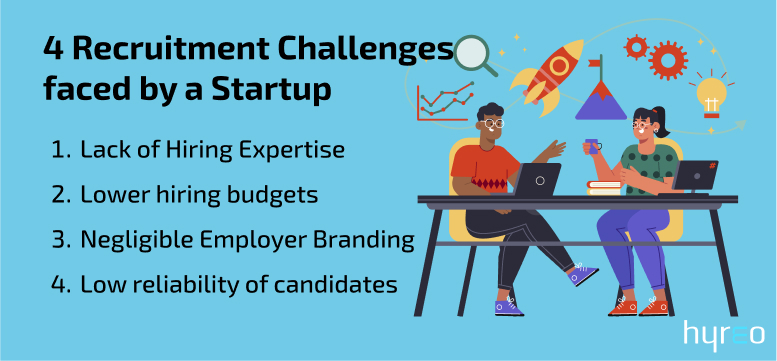Every startup sets out on its entrepreneurial journey with all odds stacked against them and many do succumb to the market pressures while others make it big, sometimes beyond their wildest expectations.
As Microsoft reveals, there are over 150 million startups in the world today, and 50 million more launching every year. In order to survive the highly turbulent and competitive world of startups, one must look to innovation and unique differentiators to carve a niche for themselves. Towards that, it is imperative to build a creative and collaborative team of A-players, delivering highly ingenious products and top-of-the-line services to their customers.
So how can startups leverage a comprehensive Startup Recruitment Strategy to hire stellar talent for a remarkable growth trajectory and create exponential value, all the while staying within their budget?
What does Recruitment look like in a Startup?
According to Randstad, 32% of startups expect to boost hiring by more than 30%, while 28% of companies plan to increase hiring by 11% to 20%.Hiring highly qualified talent is at the top of every Talent Acquisition & HR leader’s business agenda however it becomes quite critical for a startup with the high stakes riding on the business outcome.
Hiring the right talent is extremely critical to the early growth and success of a startup as the initial team helps shape the company’s future enabling them to build high quality products & services, creating a par-excellence market reputation and clientele.
However, with the budgetary constraints, no branding and the dearth of exceptional talent to drive a steady growth, startups find it exceedingly hard to hire qualified talent. Furthermore, bad hires impact a startup more drastically than the established companies with a wrong team being the third most common reason for the failure of startups.
4 Recruitment Challenges faced by a Startup
Hiring in the startup world is fraught with challenges and very dependent on the quality of the talent being onboarded, especially when a new hire at a startup has the power to set the business growth pace ablaze or throw a wrench into their smooth running operations.

While a limited pool of highly skilled candidates is the most prominent challenge faced by a startup, there are other recruitment challenges that adversely impact the growth of it.
#1 Lack of Hiring Expertise
Startups lack the stock hiring skills as well as specialized hiring skills that enable them to register strong and steady growth. Without a dedicated hiring team or often, even a recruiting professional, it becomes quite difficult to hire top talent. With the employees expected to play a variety of roles within the startup taking on much higher responsibilities, it becomes difficult to create and sustain a stable and reliable recruitment process, hiring the required skills at the right time to the expectations of the role.
#2 Lower hiring budgets
Even with financial backing from investors, startups find it harder to meet the compensation expectations of highly qualified talent than the established brands with deep pockets. With the lean business operations and even leaner hiring budgets, startups fail to attract talent with the conventional hiring practices and candidate pools. To add to their recruitment woes, candidates often expect a premium on their compensation for the risk they are running by taking up an opportunity with no brand image, successful products or a client base.
#3 Negligible Employer Branding
Being new to the market, startups aren’t yet an entity to reckon with and so have virtually no takers from the potential candidates. Sourcing talent becomes a huge challenge with the negligible brand image, no set talent pools, and the lower job security.
Building a good employer branding can be an important tool to amplify your hiring strategy.
#4 Low reliability of candidates
In the highly competitive talent market, candidates tend to have the upper hand, often holding 3 to 5 offers at the same time, using each offer to negotiate for better compensation with the next company. With the high incidence of candidate drop-offs and hiring costs for these candidates, startups get a raw deal, not having adequate funds or fluidity to plan for multiple candidates for the same role.
10 Hiring Strategy Templates for a Startup
With the right talent being critical to the growth and success of a startup and to shape the future of the company, startups must hire highly driven and skilled talent with the ability to work in high pressure environments in tandem with the highly dynamic and competitive business landscape.
Towards that, they must leverage unconventional, creative and flexible ways to source and hire top-notch talent.
#1 Innovative sourcing strategy
Craft an innovative sourcing strategy, relying on personal and professional networks to build a strong talent pipeline, especially when the startup is looking for specialized skills, ingenuity and reliability. Utilize some of the new age sourcing strategies to connect and engage with highly qualified and business or technology savvy talent to strengthen the workforce with.
- Social media sourcing, where direct sourcing methods from the company handles or from the employees handles with a personalized approach helps source highly qualified potential candidates
- Social & professional networking events such as conferences, seminars, summits to meet with talent communities to build long-lasting relationships with thought leaders, and potential candidates for the companies to influence and onboard
- Campus hiring, building strong relationships with colleges and universities to source talent in mass
- Sponsor hackathons & partner with underrepresented groups (such as women in technology) to engage with and hire top diverse talent
- Employee referrals as they form the best source of getting highly qualified and vetted talent, strongly aligned to the company culture and vision
Startups must make it a point to stay in touch with all the great candidates, regardless of the outcome of the hiring, creating rich talent communities of potential candidates to activate for future positions.
#2 Draft clear candidate persona
With each candidate having a huge impact on the business outcomes, it becomes important to build a candidate persona with the ideal startup talent characteristics of accountability, innovation, high performance and passion. The candidate persona enables startups to hire high quality candidates, strongly aligned to the business values and culture, enabling them to build high quality products and services to all their customers.
Also Read – Peak Hiring Season Strategies
#3 Hiring budget
SHRM’s benchmarking data indicates that the average cost per hire is approximately $4,700.Draft a thought through hiring budget taking into account the funds and affordability for the talent, the hiring costs, infrastructure, training, compensation, incentives, benefits, taxes and equity. To be able to make an informed decision, also look at the value that each hire would potentially bring to the startup in terms of new clients, expansion of business, innovative products etc.
#4 Freelancers & other gig workers
With permanent or full-time employees causing a dent in the already constricted budget, it is worthwhile to consider part-time or freelance workers. This gives both parties an opportunity to evaluate the feasibility of full-time employment, graduating to that once they are both assured of the performance and value of permanent employment. Additionally, Startups can also consider freelancing as a long-term solution for managing non-core tasks, especially with the global freelance platform market projected to grow at a CAGR of 15.3% from 2021 to 2027, according to GlobalNewswire.
#5 Employee referrals
Employee referrals continue to be the best form of sourcing top talent, with an assurance of their high performance and their strong alignment to the company values and culture. For the startups, referrals prove to be highly beneficial with their high performance and retention at lower hiring costs (no advertising or agency costs associated).
Also Read – How to create Diverse Talent Pool
#6 Prior startup experience
Startups need self-driven and passionate employees with the ability to work in high pressure environments with a sense of urgency. Working with sketchy details, ambiguity and highly dynamic priorities should not faze them. So associates with previous startup experience are highly invaluable as they are already familiar with such a work environment with the ability to adapt, cope and work at a fast pace.
#7 Creative ways of branding
In lieu of a prominent or reputable brand name, use content creatively to get the attention of top talent. Startups can use social media handles or other websites to establish an online presence by posting thought leadership articles, answering technical questions, white papers on projects done by them with cutting edge technology etc. These serve to connect and engage with top talent, giving them a glimpse of the work culture and innovation, influencing them to join the startup, if well aligned to their career aspirations and values.
#8 Face to face meetings & in person interactions
Considering the criticality of every employee in a startup, it is important to meet them in person, face to face to get a sense of their personality and character traits to evaluate their cultural fitment, before even assessing them on a business/technical front. Importantly, startups must use the in-person meetings to provide a compelling company vision based on the founding mission and values, exciting and inspiring them to be a part of the entrepreneurial journey.
Also Read – How to keep candidates engaged post offer
#9 Differentiated evaluation model
Startups have a very unique work environment, shaped by the vision and values, driven by the business strategy and priorities. In order to hire talent who fit into this highly innovative and competitive culture, startups must employ a differentiated evaluation process. Leveraging Hackathons, evaluation projects, creative Tech assessments etc. to assess their technical know-how and ability to ideate, innovate and troubleshoot helps find the right technical and cultural fit for the startups.
In addition to these, startups must follow through on the references provided, conduct through background checks to ensure their professional integrity and proficiency in the skills stated.
#10 Compelling Employee Value Proposition (EVP)
With virtually no brand identity or reputation to attract the candidates, startups must rely on a tailored or customized employee value proposition EVP for each of its employees. Especially since they aren’t tied down by bureaucracy, they have the ability to curate a unique EVP aligning to the individual needs and aspirations of the candidates such as:
- Equity or stock options
- Flexible or remote work arrangements
- Accelerated career trajectories with multiple roles and higher responsibilities
- Opportunity and flexibility to learn cutting edge skills
- Empowered to take complete ownership of projects and drive them to success
Wrapping Up
Hiring in today’s highly competitive and top talent scarce labor market is an uphill task for established names in the business, let alone hiring with a limited budget and sky high expectations, as is the case with startups.
Building a great startup with an accelerated business growth trajectory requires a top-notch team, strongly aligned to the company’s business vision and values. In line with that, to hire highly skilled talent to forge ahead on the aggressive business strategy, startups must leverage unconventional and innovative hiring practices with a comprehensive Startup Recruitment Strategy.
FAQs on Startup Hiring Strategy
How do you recruit people to start your startup?
With a low budget, no brand image and high expectations of the incoming talent, it is often very challenging for startups to recruit people to start their company. However, there are a few reliable ways to add talent to start your startup, as detailed below:
1. Create a strong talent pipeline relying on employee referrals, social media, professional & social networking, campus hiring etc.
2. Create a clear candidate persona for hiring A-players
3. Craft a practical and realistic hiring budget
4. Leverage freelancers & other gig workers before offering them full-time employment
5. Consider talent with previous startup experience
6. Use in person and face to face meetings to evaluate their cultural fitment as well as pitch the company to excite them
7. Use a different approach to evaluate their technical proficiency, relying on technical assessments, hackathons and even small projects
8. Lastly, provide an attractive and compelling EVP, customized to each individual candidate’s aspirations and needs
What do startups look for when hiring?
With the high business stakes of startups, they require their employees to be accountable, highly driven, innovative and passionate, enabling them to build high quality products and services to all their customers. Equally important are their interpersonal skills, business or technical skills, expertise and qualifications, enabling them to establish a strong clientele and a trusted brand image within a short period of their starting operations.
How do you build a hiring process for high growth startups?
A streamlined hiring process is critical for startups, especially with their limited budgets and highly aggressive growth plans. Invest in building a robust hiring practice with a strong recruitment process to drive growth and value. Below are a few hiring strategies for high-growth startups:
1. Clear translation of business needs to candidate persona
2. Build a strong talent pipeline with an innovative sourcing strategy
3. Involve existing employees in the hiring process
4. Ensure a phenomenal candidate experience
5. Offer special or unique benefits such as ESOPs, remote working, vacation days etc.
6. To hire to scale, leverage a recruitment company that helps fill roles with highly skilled and competitive talent
7. Leverage a tech platform for hiring such as recruitment CRM or ATS to onboard and provide a consistent candidate experience to all the employees
How quickly do startups hire?
In the early days, startups may have an impromptu style of hiring, based on the vision of the founder. However, once they reach a critical mass stage, at about 5 to 8 employees and a few clients, they need to scale up quickly and follow an organized hiring process. Ideally, people should be hired in 6 weeks or 1.5 months but realistically, with the time to source, screen, interview and hire and for the candidate to serve notice at their current place of employment, it takes from 10 to 12 weeks or roughly 3 months.
What are the 7 stages of recruitment?
The recruitment process can be divided into 7 stages covering the activities from sourcing to hiring to onboarding the candidates. The 7 stages of the recruitment process are as follows:
1. Preparing the job description
2. Sourcing candidates
3. Screening candidates
4. Selecting & interviewing candidates
5. Hiring a candidate
6. Post offer candidate engagement
7. Onboarding the employee




